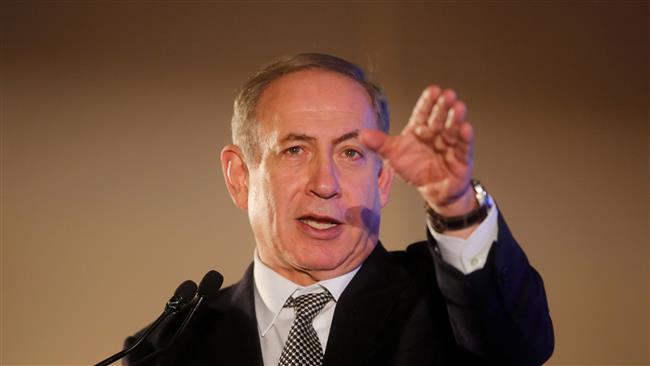
RNA - “We are leaving the period. This building [approval] was a taste. We are going to be doing many things differently from now on,” said Netanyahu while addressing the Israeli parliament on Wednesday.
On Tuesday, in an announcement that sparked widespread condemnation, the Israeli ministry of military affairs announced that regime officials had approved the construction plans of 2,500 new settler units, with most of the structures expected to be built inside the existing settlement blocs in the West Bank.
Netanyahu added that the approval came after eight years during which Israel had “suffered” from Obama’s “not-one-brick policy,” referring to claims the Israeli prime minister has made in the past that the US told him that it would oppose any new settlement construction beyond the Green Line, the 1948 occupied territories.
“We are not talking about outposts or even settlement blocs,” he added, noting that some of the measures will be carried out in East Jerusalem al-Quds itself.
On Tuesday, White House Press Secretary Sean Spicer said that the US neither approved nor condemned the Tel Aviv regime’s fresh settlement measures, adding that US President Donald Trump would discuss the matter during an upcoming meeting with Netanyahu in Washington.
“We’re going to have a meeting with Prime Minister Netanyahu and we’ll continue to discuss that,” he said. “Israel continues to be a huge ally of the United States, he wants to grow closer with Israel, to make sure that it gets the full respect that it deserves in the Middle East,” he added.
The Israeli approval came two days after a phone conversation between Trump and Netanyahu in which regional issues were discussed and the Israeli prime minister was invited to Washington in February.
UNSC fails action against Israeli settlements
Despite its recent resolution against the illegal settlements, the United Nations Security Council refrained from taking any measures against the move following a closed-door meeting held on Wednesday.
Swedish Ambassador Olof Skoog, who is the council's president this month, stressed that such actions must be “condemned."
"We believe that any action that is taken in violation of international law or Security Council resolution 2234, regardless of who violates that resolution, needs to be condemned," he said.
Following the meeting, he noted that all members had received an update on the new settlements, but none had called for an immediate action.
Skoog added that despite their inaction, "everyone in the council that spoke today is eager to make sure we find ways to minimize the effects of unilateral action."
After the meeting, Palestinian Ambassador Riyad Mansour said that the Security Council must ensure the execution of its own resolutions and that the Tel Aviv regime must not be permitted to "get away” with constructing more settlements.
Over 230 illegal settlements have been constructed since the 1967 Israeli occupation of the Palestinian territories. The illegal structures have hampered attempts to establish peace in the Middle East.
In December 2016, the United Nations Security Council adopted Resolution 2334 that denounced the Israeli settlements as a "flagrant violation of international law."
847/940